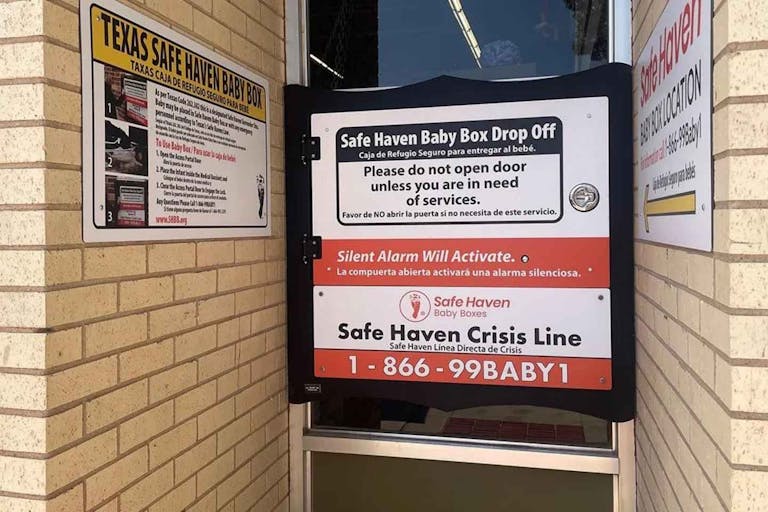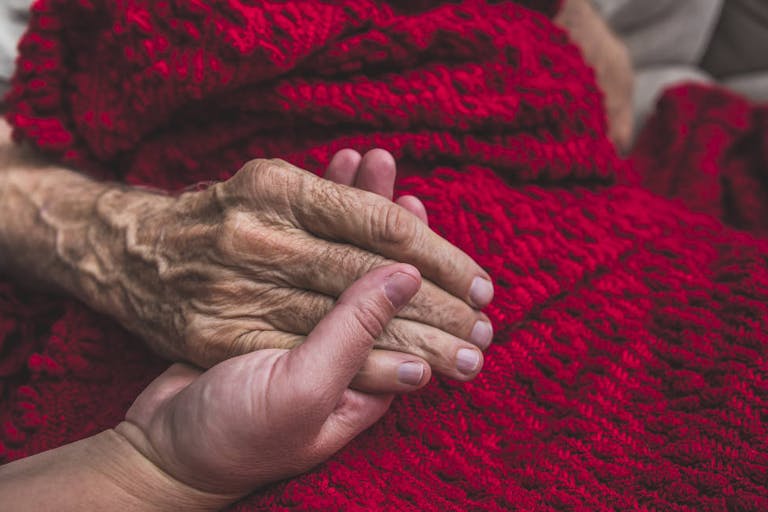
First baby surrendered in Safe Haven Baby Box in Texas
Bridget Sielicki
·
Canadian health authorities reportedly ‘destroying palliative care’ in favor of assisted suicide
According to WNG, religious doctors in Canada are facing increased pressure to take part in the nation’s Medical Aid in Dying (MAiD) agenda despite the fact that it goes against their beliefs, leading some to leave their jobs and entire health organizations to shut down. One such doctor, family physician Dr. Kevin Sclater, explained the situation to WNG.
Sclaater worked for 19 years at Crossroads Hospice in British Columbia but resigned from the job in December after what he said was years of having to push back against the hospice’s pro-euthanasia policies. Since the hospice was government-funded, it was required to carry out euthanasia. While Sclater was not forced to commit the act himself, he was asked to assess patients for MAiD.
“Having my own personal beliefs in opposition both spiritually, emotionally, socially, and professionally, I didn’t enjoy talking to people about MAiD,” he said. “But I would have to speak to them respectfully without them knowing that I had my own bias against it, and I just didn’t really want to do that anymore.”
A snowballing problem
Since Canada first legalized euthanasia in 2016, it has expanded its criteria of having a “reasonably foreseeable” natural death to include patients who were living with pain but did not have a reasonably foreseeable natural death in their future. It is seeking to expand assisted death even further to include those with mental illness beginning in March 2024.
According to WND, healthcare facilities in British Columbia that commit physician-assisted death and receive over 50% of funding from the government are required to assess patients for assisted suicide and carry it out. That law exempts faith-based facilities, but euthanasia advocates are trying to remove those exemptions.
For example, in June, Quebec passed a bill that would require all palliative care facilities in the province to commit euthanasia regardless of whether or not they are faith-based or do not agree with physician-assisted death. At the same time, the province is facing a serious lack of palliative care services that may actually be pushing patients to choose MAiD.
“Patients, failing to benefit from such care could have no other choice but to ask for medical aid in dying to end their days in dignity,” said Quebec’s College of Physicians in a letter to Quebec Health Minister Gaétan Barrette, adding, “Palliative care cannot be limited to access to medical aid in dying.”
Quebec is now considered a ‘euthanasia hotspot‘ with nearly eight percent (8%) of all deaths in the province being physician-assisted. The province’s euthanasia rate surged an astounding 55% from 3,102 in 2021 to 4,810 in 2022.
In British Columbia, Delta Hospice Society, a nonprofit that offers end-of-life care but not assisted death, was forced to shut down in 2021 following threats from the local health authority. Angelina Ireland, the president of the group, said it ran a 10-bed hospice for years, but in 2020, the local health authority notified Delta Hospice Society that it would cancel the 35-year lease on its building if it did not begin committing euthanasia.
Ireland explained that a meeting was planned to consider making the society a faith-based organization in order to obtain an exemption, however, a petition was sent to the courts to stop the meeting and the hospice was forced to close. It was then taken over by the local health authority.
“The law never said that you have to put MAiD in every single bed. The law said you need to allow people access. They’ve weaponized the law and taken it to the nth degree possible,” said Ireland. “In doing so, they have destroyed palliative care and now would like to destroy religious choice and religious exemptions.”

An unfolding tragedy
RFI Research Fellow Brian Bird, a lecturer at the Peter A. Allard School of Law at the University of British Columbia said Catholic and other religious hospitals must be allowed to remain euthanasia-free. “Pressure is mounting for Catholic health-care facilities in B.C. to provide assisted death,” he said. “… In my view, the demise of spaces that offer excellent health care and a refuge from euthanasia would be a major loss for a diverse society and mature liberal democracy. It would write a new chapter in the tragedy that I consider euthanasia to be.”
A recent case brought the debate to the forefront of international media. St. Paul’s Hospital in Vancouver, which is run by the Catholic Providence Health Care, came under fire from Dying with Dignity Canada after it transferred a 34-year-old woman with cancer to a different hospital for physician-assisted death. Providence Health Care does not commit MAiD at any of its 10 locations. Since MAiD became legal in Canada in 2016, 402 of Providence’s patients have made formal requests for MAID, and 131 have followed through with a transfer to other facilities.
Bird noted, “We speak of patients being denied assisted death, even though they receive it after being taken to facilities that provide it. Patient transfers, for that matter, are not unique to euthanasia. They also occur when a facility does not have the necessary equipment or personnel. So why are transfers for euthanasia described as ‘forced’ while other health-care transfers are not?”
Euthanasia advocates argue that if assisted death is legal it should be committed in all hospitals and that a patient’s so-called right to physician-assisted suicide trumps a doctor’s religious beliefs. They consider a doctor’s decision not to kill his or her patient to be unethical.
“Have we forgotten that assisted death was once a serious crime in Canada, is still a crime in many countries, and remains a deeply contested ethical issue?” asked Bird.
Canada’s push to expand euthanasia and force those who stand against it to participate in it will ultimately lead to the shuttering of high-quality healthcare facilities and the loss of high-quality doctors, argues Bird. Scholars are even pointing to Canada as an example of what not to do when it comes to assisted death, highlighting the harms of assisted suicide to the United Kingdom in hopes that the UK will avoid the same negative consequences.
Live Action News is pro-life news and commentary from a pro-life perspective.
Contact editor@liveaction.org for questions, corrections, or if you are seeking permission to reprint any Live Action News content.
Guest Articles: To submit a guest article to Live Action News, email editor@liveaction.org with an attached Word document of 800-1000 words. Please also attach any photos relevant to your submission if applicable. If your submission is accepted for publication, you will be notified within three weeks. Guest articles are not compensated (see our Open License Agreement). Thank you for your interest in Live Action News!

Bridget Sielicki
·
Analysis
Cassy Cooke
·
Politics
Cassy Cooke
·
Analysis
Cassy Cooke
·
Analysis
Nancy Flanders
·
Newsbreak
Angeline Tan
·
Politics
Nancy Flanders
·
Pop Culture
Nancy Flanders
·
Politics
Nancy Flanders
·
Politics
Nancy Flanders
·
Abortion Pill
Nancy Flanders
·